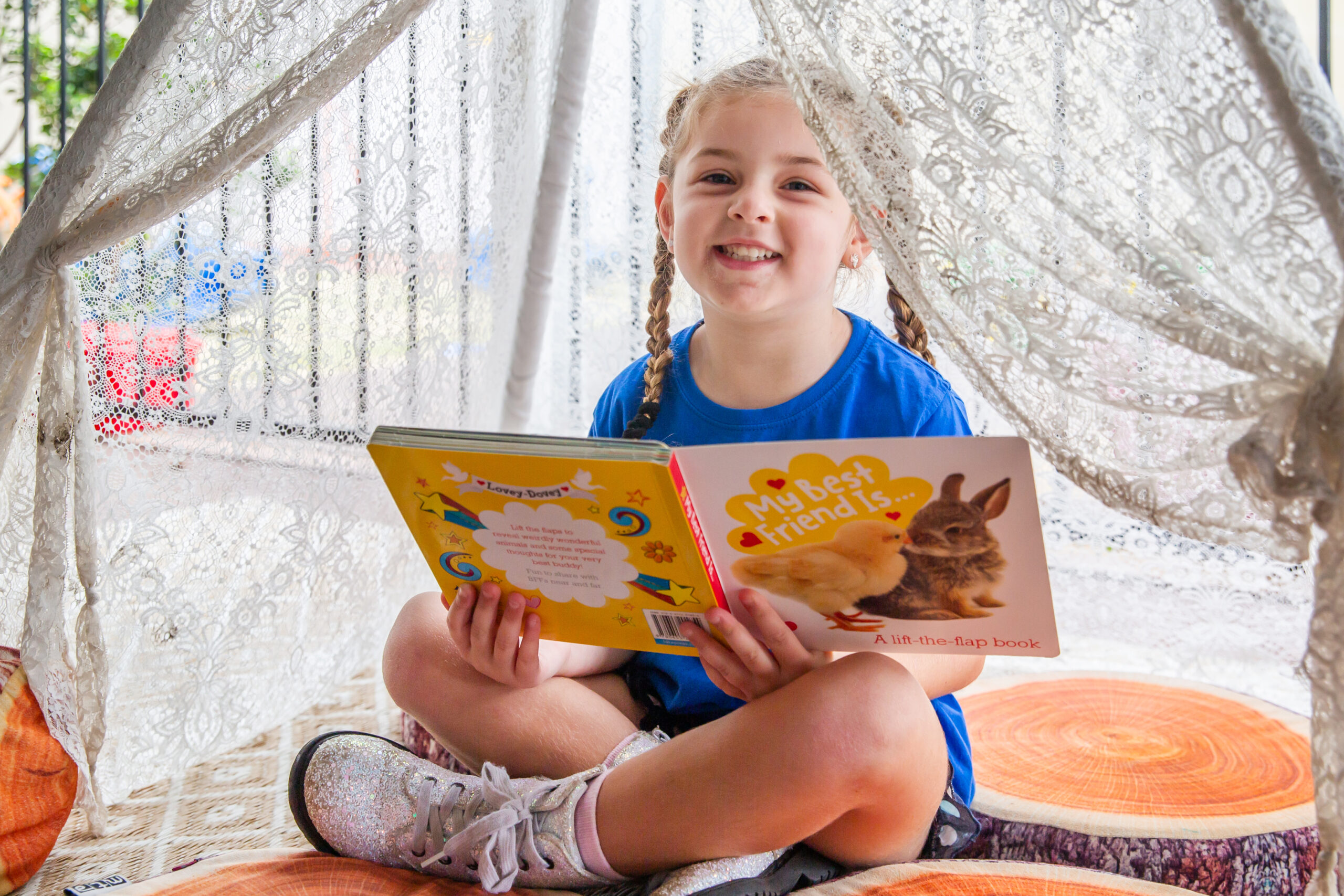
“You stood at the edge of the playground, holding my hand so tightly. I smiled and encouraged you to go play, but your feet stayed planted. I didn’t understand - your sister ran off without looking back. Why was this so hard for you?”
If you’ve had this moment, you’re not alone.
As parents, it can feel confusing, and even a little frustrating, when one of our children leaps confidently into new situations while another hangs back, quiet and unsure. You’re the same parent, with the same love and encouragement. But your children are wired differently, and that’s more than okay. It’s something to be celebrated.
Whether your child is a toddler just starting to explore the world, or a preschooler getting ready for big school, these moments of nervousness are common, and completely normal.
At Milestones Early Learning, we understand that every child is unique. Some little ones are naturally outgoing, others are slow to warm up, and many are somewhere in between. If your child gets nervous around new people or places, the most powerful thing you can offer is patience, empathy, and gentle encouragement. And we're here to help.
1. Understand That Introversion Isn’t Shyness, or a Problem to Fix
As Susan Cain explains in her bestselling book Quiet: The Power of Introverts in a World That Can’t Stop Talking, introversion isn’t the same as shyness. It’s not fear, it’s simply how a child responds to stimulation. Introverted children often prefer quieter settings and smaller groups, and they may need time to recharge after busy or social activities.
They’re not broken, lacking, or behind, they just flourish in different ways.
Introverted children often bring incredible gifts to the world - empathy, creativity, deep focus, and thoughtful listening. These aren’t traits to overcome, they’re strengths to celebrate.
2. Start with Familiarity and Routine
Predictability helps children feel secure. Before introducing a new setting, like a birthday party, family barbeque or childcare centre, talk through what they can expect. Use simple routines, visual cues, or even role play with toys.
At Milestones, we welcome orientation visits and gentle transitions. Your child can come in with you, meet their educators, and explore the space at their own pace. Ask your Centre Manager for the daily routine so you can prepare your child with calm confidence:
“First we’ll put your bag in the locker, then we'll go outside and say hello to Miss Shae.”
3. Let Them Observe, Then Take Small Steps
Introverted children tend to watch and absorb before they act. This isn’t hesitation, it’s deep processing.
Let your child observe new people or activities from a safe distance. When they’re ready, offer small, low-pressure invitations:
“Would you like to sit next to me and watch the story?” or
“Want to help me build in the sandpit for a bit?”
Celebrate the small wins - waving hello, joining in for a few minutes, or walking through the classroom door without tears. These are big, brave steps.
4. Create Calm, Supportive Environments
Children who are more sensitive to stimulation thrive in peaceful, predictable environments. At Milestones, our centres are designed to offer both active and quiet spaces, so children can choose where they feel most comfortable.
We make space for:
-
Quiet corners with books and puzzles
-
One-on-one or small group activities
-
Calm transitions between parts of the day
-
Flexible routines tailored to your child’s comfort and readiness
Our exclusive Lifelong Learning Curriculum supports emotional confidence, social connectivity, physical wellbeing, and foundational learning, building secure, confident learners from the inside out.
5. Trust Our Educators to Notice the Quiet Ones
Sometimes, quiet children can be misunderstood as disengaged, but they’re often deeply tuned in. At Milestones, our educators are trained to notice and nurture all children, not just the loudest voices in the room.
We know how to:
-
Pair children with consistent “buddies”
-
Recognise non-verbal cues of interest and connection
-
Offer support gently, without pressure
-
Validate emotions and build trust over time
This intentional, responsive approach helps every child feel seen, valued, and safe to explore at their own pace.
6. Use Books as a Gentle Bridge
Reading together is a powerful way to help children process feelings and imagine themselves in new situations. Here are a few favourites:
For Parents:
-
Quiet: The Power of Introverts in a World That Can’t Stop Talking by Susan Cain
-
The Highly Sensitive Child by Elaine N. Aron
For Children:
-
The Invisible String by Patrice Karst - for separation anxiety
-
Llama Llama Misses Mama by Anna Dewdney - great before starting childcare
-
Wemberly Worried by Kevin Henkes - a sweet story about facing fears
These stories remind children (and parents) that it’s okay to feel nervous, and that things often get easier with time.
Every Child Blooms in Their Own Time
It’s not always easy to parent a more sensitive or quiet child, especially when their sibling is the total opposite. But with your love and support, and the right environment around them, your child can flourish.
At Milestones, we meet children where they are. Whether they’re quiet observers, bold explorers, or somewhere in between, we help them feel confident, connected, and ready for the world around them.
💛 Want to see how we support children of every temperament? Book a tour at your local Milestones centre - we’d love to show you around.
